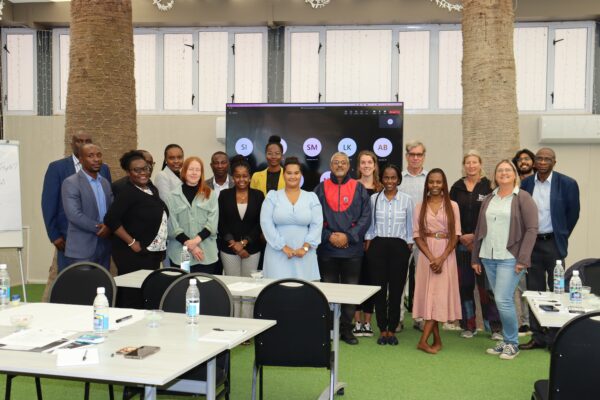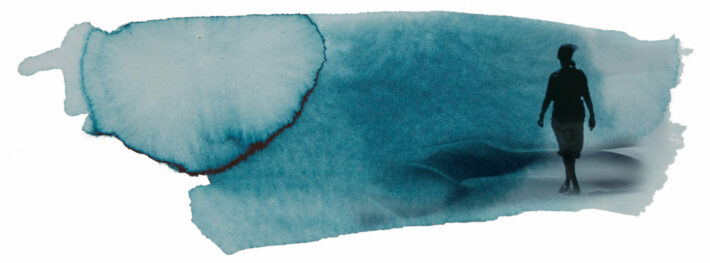Exploring the “blue carbon” potential in Namibia

Workshop participants. Photo: Samantha Matjila

Namibia Nature Foundation and South Atlantic Environmental Research Institute, who are project partners of the One Ocean Hub, held a workshop on 31 March 2022 to advance understanding of the economic value of marine ecosystem services. Experts from government, academia, civil society and the private sector convened in the coastal town of Swakopmund, Namibia to explore the concept of “blue carbon”, an emerging area of research in the marine space.
Vegetated marine ecosystems are increasingly being recognised for their ability to capture and store large amount of carbon, underlining their vital role in climate change mitigation. However, these ecosystems are being degraded at alarming rates. By better understanding the functioning and value of these ecosystems to human societies and economies, a strong case can be made for the sustainable management and restoration of these ecosystems. Economic valuation is one approach that can facilitate this process.
Namibia Nature Foundation presented on economic valuation techniques that can be applied to marine ecosystem services. The understanding and application of these tools is nascent in the Namibian marine space. This then proceeded to an overview of the methodological approach taken for the valuation of blue carbon, which in the case of this project refers to kelp. While there is currently only focus on the value of capture and storage of carbon, future work could widen the scope to the various other benefits these habitats can provide to humans – storm protection, tourism and food, to name a few.
Participants were then divided into groups for discussions that sought to i) bring together the current state of knowledge on blue carbon habitats in Namibia and ii) consider what may hinder the conservation or restoration of these habitats. There was consensus that the knowledge to date is limited; if we are to gain a better understanding of these ecosystems in Namibia, more research is necessary. This was particularly the case for understanding the spatial extent of these habitats, as this would provide better insight into whether there is a conflicting use of the marine space that may require intervention.
Ultimately, by reliably identifying and measuring the values associated with the services provided by these habitats, policymakers can compare the present monetary value of these benefits with the costs of intervening. Protection of these habitats has the potential to provide economic, social and environmental payoffs – the same triple bottom line a sustainable blue economy offers.
Th workshop also provided an opportunity to explore synergies with other relevant activities in Namibia. For instance, the project “NAMares”, funded under the MeerWissen initiative, was also invited to present on their activities to improve understanding of marine ecosystem services in Namibia. They noted that their focus will be on coastal tourism, shell collecting and artisanal fisheries. In addition, Kelp Blue, an organisation looking to grow giant kelp forests off the coast of Lüderitz, presented an overview of their operations and thier specific focus on highlighting the benefits of kelp.
Hub researchers from legal, social and fisheries sciences at the University of Namibia shared completed and planned research, and will work closely with Namibia Nature Foundation and South Atlantic Environmental Research Institute, as well as with Blue Kelp, in the next two years to integrate research findings into the economic valuation of marine ecosystem services. Equally the collaboration will support a more participatory approach to the valuation of blue carbon in Namibia, and the consideration of its implications for the protection of human rights dependent on a healthy ocean.